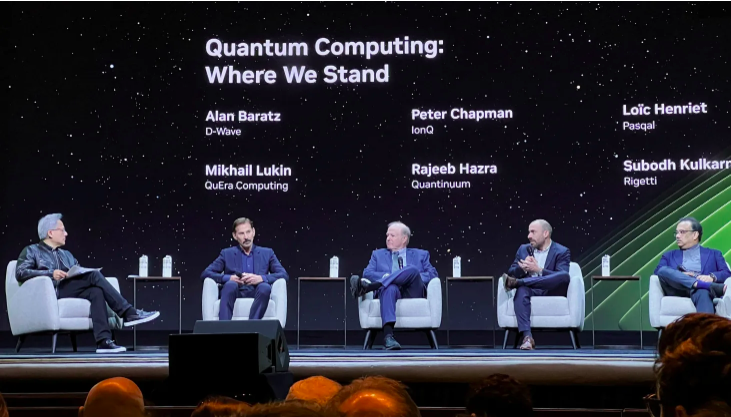The Quantum Computer Race is heating up
One of the world's most valuable companies, Nvidia, has just announced its entry into this space, after CEO Jensen Huang announced that it would build a quantum computing research center in Boston (USA).

Nvidia will build a quantum computing research center in Boston (USA).
“The current excitement is due to the convergence of technological advances, funding, and a clearer path to real-world applications. By some estimates, more than $50 billion has been committed by governments around the world to invest in quantum technologies, including quantum computing,” said Matt Langione, managing director and partner at Boston Consulting Group.
Experts say quantum computers have the potential to efficiently solve problems that would be difficult if not impossible for classical computers, although this does not mean the technology will completely replace classical computers.
“Quantum computers will actually advance classical computers because they can complement each other. Future problems solved by quantum computers will always be solved with hybrid setups, where you have a classical computer doing the part of the algorithm that classical computers are more efficient at and a quantum computer doing the part of the algorithm that quantum computers are more efficient at,” said Langione.
For example, quantum systems could be more efficient at things like coming up with new drug therapies or better battery materials. Analysts at McKinsey and Company estimate that the four industries likely to see the earliest economic impact from quantum computing—mobile, chemicals, financial services, and life sciences—could reach $2 trillion in value by 2035.
“This is a new class of computer that I think could dramatically change almost every aspect of industry, commerce and science,” said Peter Barrett, founder and general partner at venture capital firm Playground Global, which is also a major investor in quantum computing startup PsiQuantum.
Despite tremendous progress in the field in recent years, quantum computers are still unable to solve major real-world problems right now.
Nvidia CEO Admits Mistake on Quantum Computer Timeline
On Thursday, Nvidia CEO Jensen Huang walked back comments he made in January, when he doubted whether useful quantum computers would be commercially available within the next 15 years.

Nvidia CEO Jensen Huang (left) admitted his mistake after saying it would be 20 years before quantum computers were commercially available.
At Nvidia’s “Quantum Day” event, part of the company’s annual GTC conference, Mr. Huang admitted that his comments were wrong. It was the first event in history where a company CEO invited all guests to explain why he was wrong.
In January, Mr. Huang sent quantum computing stocks reeling when he said 15 years was “too early” to consider when the technology would be useful. At the time, he said 20 years was a timeframe “a lot of us would believe.”
In his opening remarks, Huang drew a comparison between pre-revenue quantum companies and Nvidia’s early days. He said it took Nvidia more than 20 years to build its software and hardware businesses. He also expressed surprise that his comments could have an impact on the market, joking that he had no idea that certain quantum computing companies were publicly traded.
Nvidia’s “Quantum Day” event included panels with representatives from 12 quantum companies and startups. The event represented a sort of truce between Nvidia, which makes more traditional computers, and the quantum computing industry. Several quantum executives have pushed back against Nvidia after Mr. Huang’s earlier comments.
A third panel included representatives from Microsoft and Amazon Web Services, which are also investing in quantum technology and are among Nvidia’s biggest customers. Nvidia has another reason to embrace quantum. While quantum computers are being built, much of the research on them is done using simulators on powerful computers like the ones Nvidia sells.
It’s also possible that quantum computers will need a traditional computer to run. Nvidia is working to provide technology and software to integrate graphics processing units (GPUs) and quantum chips. “Of course, quantum computing has potential, and we all hope it will have an extraordinary impact. But the technology is incredibly complex,” Huang said.
Quantum computers have been the dream of physicists and mathematicians since the 1980s, when California Institute of Technology professor Richard Feynman first proposed the idea behind quantum computers.
While classical computers use bits that are either 0 or 1, the bits inside a quantum computer — qubits — eventually turn on or off based on probability. Experts predict that the technology will be able to solve problems with a large number of possible solutions, such as decoding codes, routing deliveries, or simulating chemistry or weather.
Source: https://www.baogiaothong.vn/tai-sao-cac-ong-lon-cong-nghe-dua-nhau-xay-dung-may-tinh-luong-tu-192250323200551628.htm



































































































Comment (0)